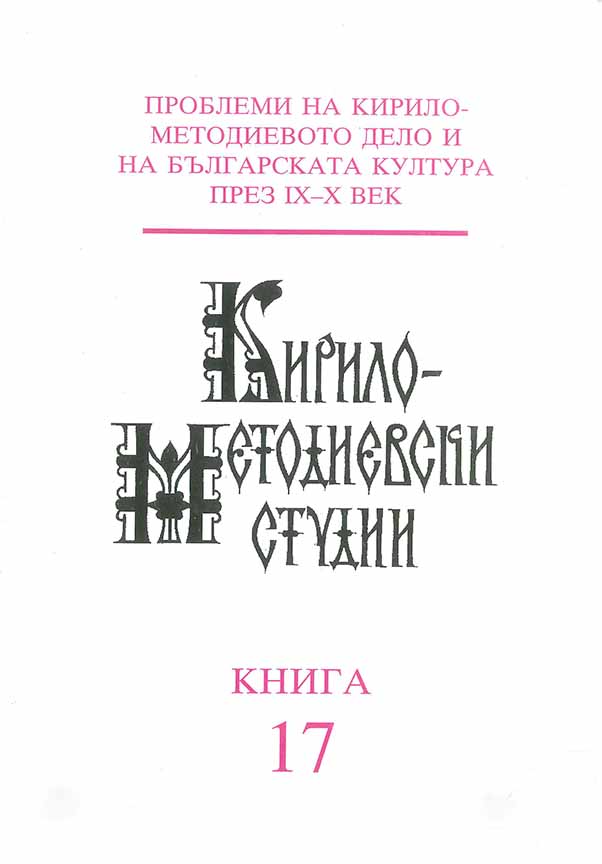Делото на Кирил и Методий в контекста на средновековна Европа
The Oeuvre of Cyril and Methodius in the Context of Mediaeval Europe
Author(s): Tanya LalevaSubject(s): Language studies, Language and Literature Studies
Published by: Кирило-Методиевски научен център при Българска академия на науките
Summary/Abstract: The testing of the doctrinal fidelity of the Cyrillo-Methodian translations was made most probably by envoys from Rome in the winter of 867 AD. The insertion of the filioque clause in the Nicene-Constantinopolitan Creed has a strong anti-Arian purpose and it became part of the liturgy beginning at the 3rd Council of Toledo in 589 AD. The practice, which became customary in the Frankish Empire after 794 AD, was not accepted in Rome until 1014 AD. The Nicene-Constantinopolitan Creed as confessed by Methodius is in agreement with Roman tradition and practice. In the Slavonic Christian texts and in the activity of Cyril and Methodius the popes saw the first real opportunity to regain zones of influence that had been lost long ago. The canonical order established with the return of Bulgaria to the Byzantine Church affected directly the papal interests, because in essence it legalized also the rights of the German bishops in the lands Christianized by them. That is why after Methodius was freed by Pope John VIII he could not return to Pannonia but left for Great Moravia.
Journal: Кирило-Методиевски студии
- Issue Year: 2007
- Issue No: 17
- Page Range: 465-473
- Page Count: 9
- Language: Bulgarian
- Content File-PDF

